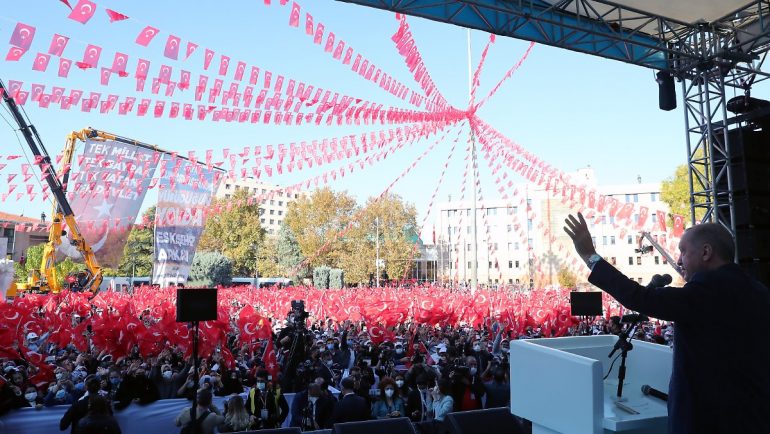Sunday 24 October 2021
speech angry german politician
Erdogan ignites a new level of growth
Erdogan ignites a new level of growth
Nothing has happened officially yet. The foreign ministries of the respective states know only from the media of Turkish President Erdogan’s announcement that ten Western ambassadors would be declared undesirable. But German politicians are already demanding dire consequences in some cases.
Relations between Germany and Turkey are facing another stress test. The German government only “heeded” Turkish President Recep Tayyip Erdogan’s announcement that he would declare ambassadors from Germany, the United States and eight other countries as undesirable. Representatives of the German parties condemned Erdogan’s statements against it and demanded a strong response.
Erdogan announced in a speech on Saturday that he would declare the ambassadors of Germany, the US and eight other countries as unwanted persons. He had instructed the foreign ministry to do so, the Turkish president said during his visit to Eskiehir. “I said, see that these ten ambassadors be declared ‘persona non greta’ as soon as possible.” Such a move usually results in the expulsion of diplomats. Erdogan did not name the time frame.
It was told from the Foreign Office circles in Berlin: “We have taken note of the statements made by Turkish President Erdogan and reports thereon and are currently in close consultation with the nine other countries concerned.” Apart from Germany and the US, France, Canada, Finland, Denmark, Netherlands, New Zealand, Norway and Sweden are also affected. The US State Department asked for clarification. “We are aware of the reports and are now seeking clarification from the Turkish State Department,” a spokesman for the US State Department said.
The backdrop to Erdogan’s statements is a statement made by ambassadors earlier in the week, in which he called for the release of Turkish entrepreneur and culture promoter Osman Kavala. The 64-year-old has been in custody in Istanbul since 2017 although the European Court of Human Rights ordered his release in 2019. Turkey has so far ignored this decision.
Claudia Roth calls for sanctions
Kavala is accused of attempted coup d’état in relation to the 2013 Gezi protests, which were critical of the government, as well as “political and military espionage” in relation to the 2016 coup attempt. Trials against him and more than 50 other defendants are pending in Istanbul and will continue until the end of November. His supporters consider the allegations to be politically motivated. Kavala is known for his commitment to civil society in Turkey, supporting a number of projects with his organization Anadolu Kultur.
The Kavala crisis is likely to put heavy strain on relations between NATO partner Turkey and the European Union and the United States. Germany and Turkey have really come close again after bilateral ties were deeply strained in 2017 following the captivity of German nationals. Just last week, Chancellor Angela Merkel stressed the importance of German-Turkish relations during her farewell visit to Erdogan.
German politicians sharply condemned Turkey’s stance on Saturday evening. Bundestag vice-president Claudia Roth called for the sanctions: “Erdogan’s dishonest actions against his critics are increasingly being hindered,” the Green politician said. One would have to face “Erdogan’s authoritarian course at the international level”, impose sanctions and stop arms exports to Turkey. The FDP’s foreign politician Alexander Graf Lambsdorff wrote on Twitter that the possible expulsion of the ten ambassadors would be “stupid, un-diplomatic and undermine the cohesion of the coalition.” Erdogan could not be interested in him.
CDU foreign policy expert Norbert Rötgen referred to the “Sudeutsche Zeitung” as “an increase in foreign policy”. Erdogan is “leading his country widely away from Europe and the West”. Turkish opposition leader Kemal Kilicdaroglu also sharply criticized Erdogan’s statements. Erdogan did not want to represent national interests with the move, but to divert attention from the devastated economic situation, he wrote on Twitter.

Introvert. Proud beer specialist. Coffee geek. Typical thinker. Pop culture trailblazer. Music practitioner. Explorer.





